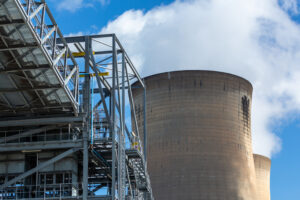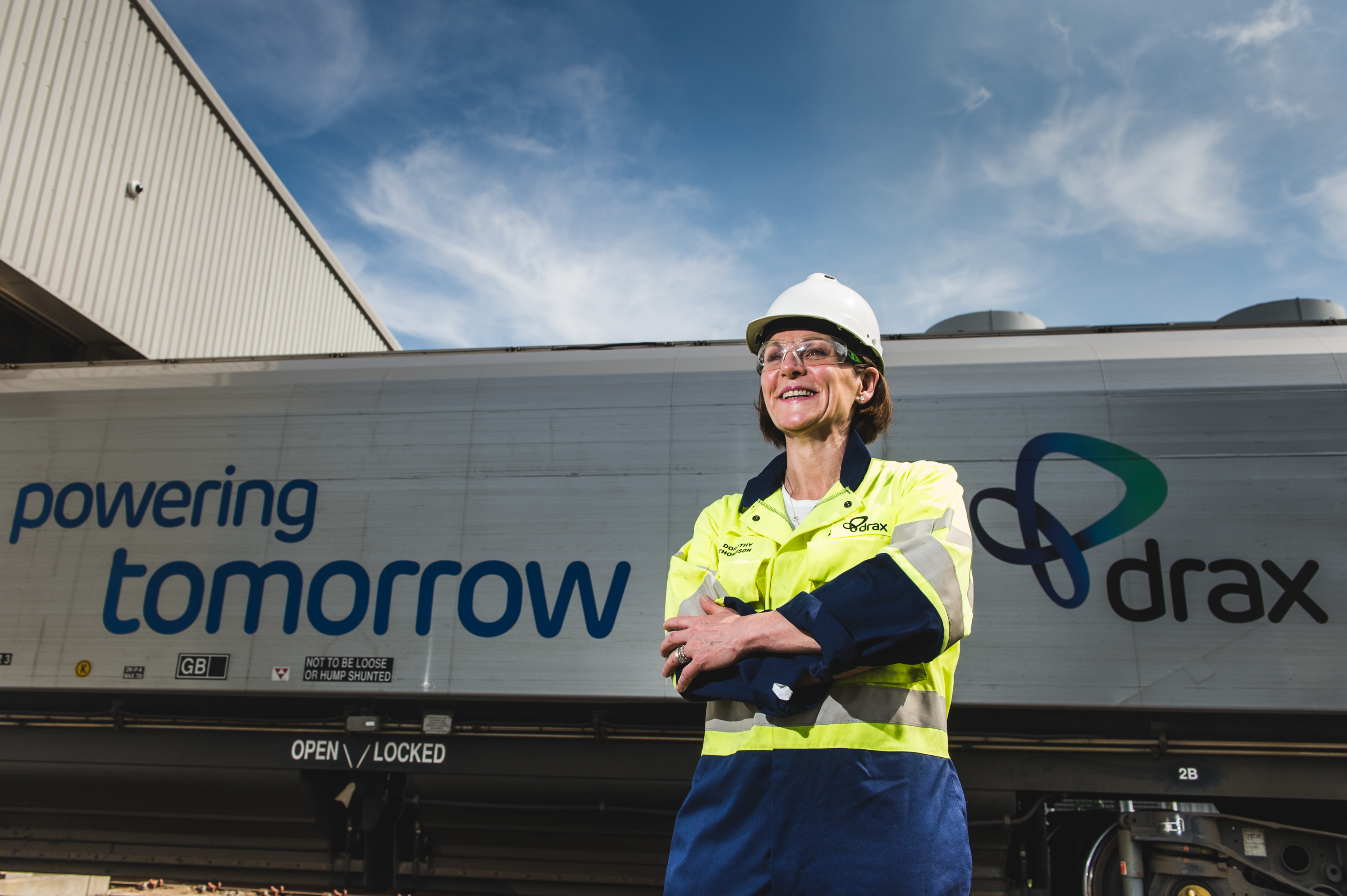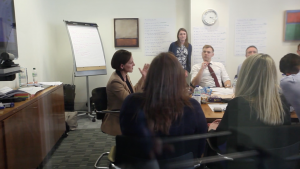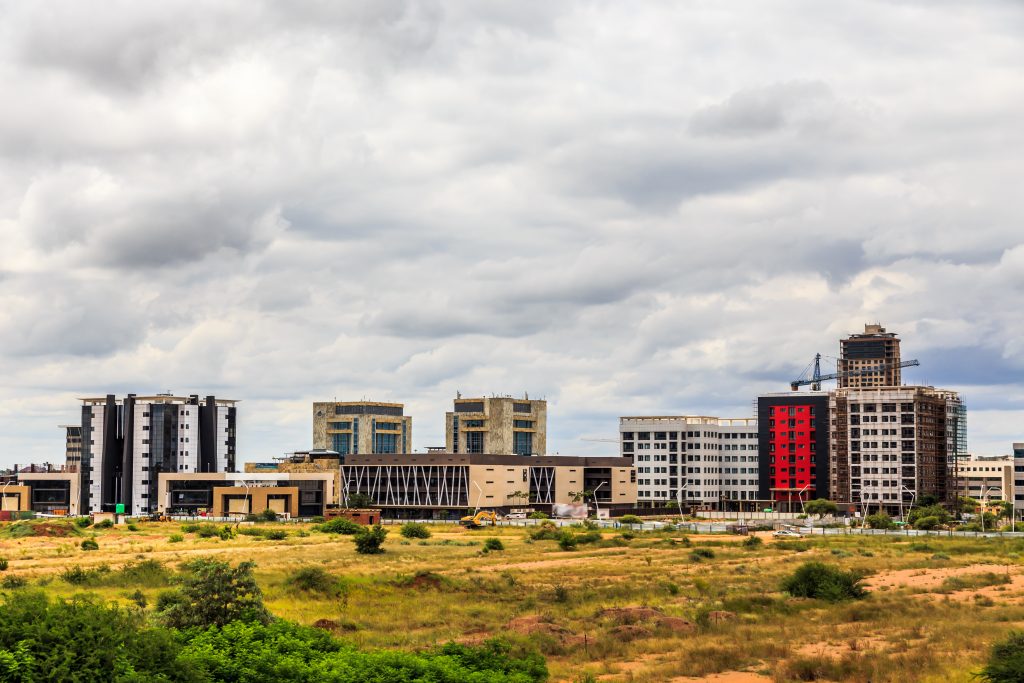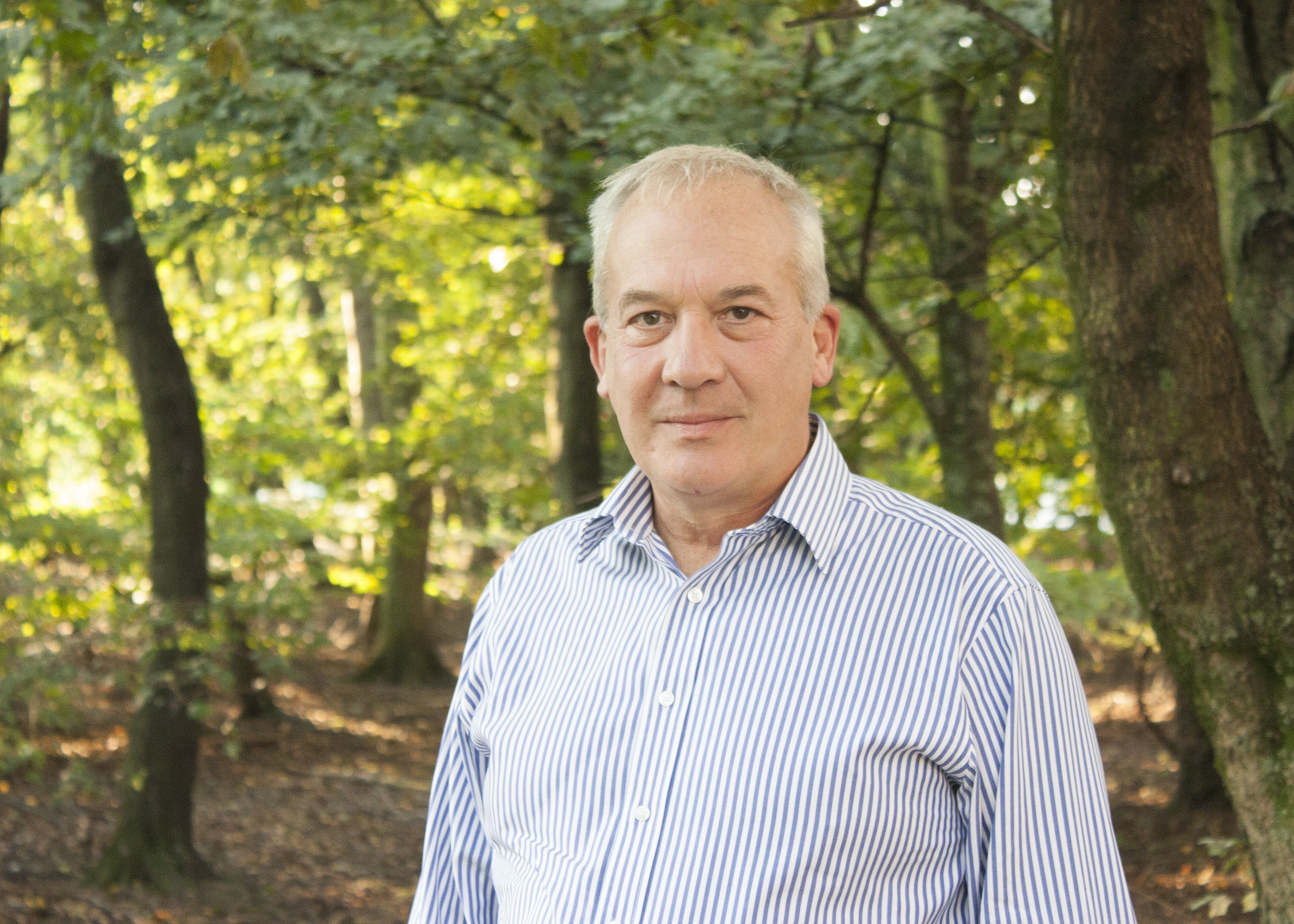
It was a forestry catastrophe that first inspired Matthew Rivers’ interest in forests.
Dutch Elm trees, an iconic part of the UK landscape for over 250 years were becoming infected with a fatal and fast-spreading disease. The race was on to save them.
A schoolboy in North London at the time, Rivers joined the after curricular school team tasked with saving its trees – first by injecting them with insecticide, and when that didn’t work, by felling and replanting them. It was an early foundation in how forests work and the challenges of keeping them healthy.
Decades later, Rivers is Director of Corporate Affairs at Drax. It’s a role he finds himself in following a career as a forester, helping to manage forestry businesses, and supporting the setting up of wood product manufacturing plants.
His own estimation of his working life is a humble one, however. “I think I’m probably a failed farmer,” he says.
“A forester always plants in hope.”
Rivers studied forestry at university in Scotland before taking up jobs in the forestry industry across the UK, Uruguay and Finland. Working in this industry, he says, is one that requires patience.
“In the UK we’re talking about 30- or 40-year growth cycles. The trees I planted at the start of my career are only just coming to maturity now,” he explains.
But more than the long investment of time, being a forester relies on faith. “A forester always plants in hope,” he says. When a forester plants a tree, he or she most commonly does not know who the end customer will be.
So when the call came from Drax for a forestry expert to help guide the company through an important transformation – upgrading the power station from coal to biomass – the challenge was one he was ready to take.
“Drax already had ambitions of converting three boilers to run on biomass. That would mean consuming tonnes of compressed wood pellets,” he says. The business needed a supply, and Rivers was drafted in to set this up.
As part of the supply solution, and Chaired by Rivers, Drax set up Drax Biomass, a pellet manufacturing business in the USA that makes and supplies compressed wood pellets to Drax Power Station.
Setting up its own manufacturing plant not only means Drax needs to rely on fewer external suppliers, but also that it can use the learnings about the technologies, the economics and the sourcing of the process to continually hone its supply chain.
To operate responsibly and receive governmental support, Drax has to be sustainable, and this is particularly important when it comes to where and how it sources its fuel. This comes with its own challenges.
No universal definition of sustainability
“To my understanding, there is no universal definition of sustainability,” says Rivers. So how do you proof your business for an unclear entity?
“At its heart, sustainability is about not doing anything today that would prejudice doing the same thing for the next generation or generations to come.”
A responsibly managed forest is one that is as healthy, productive, diverse and useful in 100 or 500 years’ time as it is today. They key to this, is to think of forests as a whole.
Rivers explains: “Think about a single tree – you fell it and use it to heat your home over one winter. But it’s going to take perhaps 30 years for that tree to grow back,” he says. “What do you do for the next 30 years?”
“In a sustainably managed forest you have all different ages of tree represented – one thirtieth devoted to each age- and, when you use an older tree to warm you in winter, you plant a replacement. That way, for every year you’ll have trees reaching maturity ready to provide your power.” It’s a cycle that, if managed responsibly, keeps delivering a useful resource as well as maintaining the health of the forest.
Rivers continues: “Sustainability is the very nature of what a forester does; because if we don’t take care of our forests, and ensure we have a crop to harvest year after year, we lose our livelihood.”
Becoming a private forester
Two decades ago, Rivers completed a loop he started decades ago amidst the Dutch Elm crisis and became a forest owner himself. In Scotland, he bought, and now manages, his own private forest.
“We’ve had kids’ birthday parties, we’ve dug out a pond, we harvest chanterelles in the autumn – there’s a millennium capsule buried somewhere,” he says.
It’s not only a family heirloom. It’s a place for him to exercise a passion – maintaining and managing a responsible and healthy forest.





